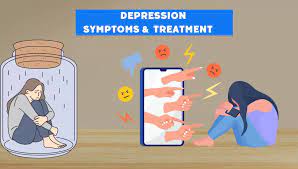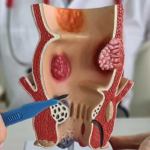
Introduction
Depression is a complex and prevalent mental health disorder that affects millions of individuals worldwide. Understanding the symptoms, causes, and treatments for depression is crucial for fostering empathy, reducing stigma, and promoting effective support systems.
Defining Depression: A Complex Mental Health Disorder
Depression is more than just occasional feelings of sadness; it is a persistent and pervasive mental health disorder. It impacts individuals’ thoughts, emotions, and daily functioning, often leading to profound changes in their quality of life.
Common Symptoms of Depression
Recognizing the symptoms of depression is essential for early intervention. These symptoms may include persistent feelings of sadness, changes in sleep patterns, fatigue, changes in appetite, difficulty concentrating, and feelings of worthlessness or guilt.
Types of Depression
Depression manifests in various forms, including major depressive disorder, persistent depressive disorder (dysthymia), bipolar disorder, and seasonal affective disorder. Each type has its unique features and duration of symptoms.
Causes and Risk Factors
Depression is influenced by a combination of factors. Genetic predisposition, alterations in brain chemistry, life events, and environmental influences contribute to the development of depressive disorders.
Understanding the Role of Neurotransmitters
Imbalances in neurotransmitters, such as serotonin and dopamine, play a crucial role in the onset and progression of depression. These chemical messengers impact mood regulation and emotional well-being.
Psychosocial Factors: The Impact of Life Events
Stressful life events, trauma, and chronic stress can act as triggers for depressive episodes. Understanding the psychosocial factors that contribute to depression is vital for comprehensive mental health care.
Genetic and Biological Influences on Depression
Genetic factors and biological influences contribute to an individual’s susceptibility to depression. Family history and certain genetic markers may increase the risk of developing depressive disorders.
Co-occurring Conditions: Depression and Other Health Issues
Depression often coexists with other health conditions, such as anxiety disorders, chronic illnesses, and substance abuse. The interconnectedness of mental and physical health requires a holistic approach to treatment.
The Importance of Seeking Professional Help
Seeking professional assistance is crucial for accurate diagnosis and tailored treatment plans. Mental health professionals can assess the severity of symptoms, identify underlying causes, and recommend appropriate interventions.
Common Treatment Approaches: Therapy and Medication
Therapeutic approaches, including cognitive-behavioral therapy (CBT), provide effective tools for managing and overcoming depression. Antidepressant medications may also be prescribed to restore neurotransmitter balance.
Lifestyle Changes for Mental Well-being
Incorporating positive lifestyle changes is integral to managing depression. Regular exercise, maintaining healthy sleep patterns, fostering social connections, and adopting stress management techniques contribute to overall mental well-being.
Stigma Surrounding Depression: Breaking the Silence
The stigma surrounding depression can hinder individuals from seeking help. Open conversations, education, and awareness are essential in breaking the silence and fostering a supportive environment.
Support Systems: The Role of Family and Friends
Supportive relationships play a crucial role in the recovery process. Friends and family members can provide emotional support, encouragement, and understanding, contributing to the overall well-being of individuals facing depression.
Preventive Measures and Long-Term Management
Preventive measures, ongoing self-care, and long-term management strategies are essential for individuals living with depression. Regular check-ins with mental health professionals, self-awareness, and adherence to treatment plans contribute to sustained mental health.
Conclusion
In conclusion, understanding depression requires a nuanced approach that considers the interplay of biological, psychological, and social factors. By fostering awareness, reducing stigma, and promoting compassionate support systems, we can create an environment where individuals affected by depression can seek help and embark on a path towards healing.
FAQs
Can depression be solely caused by genetic factors?
While genetics can play a role in predisposing individuals to depression, it is often a combination of genetic, environmental, and psychological factors that contribute to the development of depressive disorders.
Is medication the only treatment option for depression?
No, medication is one of several treatment options for depression. Therapeutic approaches, such as cognitive-behavioral therapy (CBT), lifestyle changes, and support systems, are also crucial components of comprehensive depression management.
Can lifestyle changes alone effectively manage mild depression?
Yes, for some individuals with mild depression, positive lifestyle changes such as regular exercise, healthy sleep patterns, and social connections may be sufficient. However, it’s essential to consult with a healthcare professional for personalized guidance.
How can family and friends support someone with depression?
Providing emotional support, actively listening, encouraging professional help-seeking, and fostering a non-judgmental environment are ways in which family and friends can support someone facing depression.
Are there preventive measures for individuals at risk of developing depression?
Yes, preventive measures include maintaining a healthy lifestyle, seeking early intervention for stress or mental health concerns, and building a strong support system. Identifying and addressing risk factors can contribute to preventing the onset of depression.







